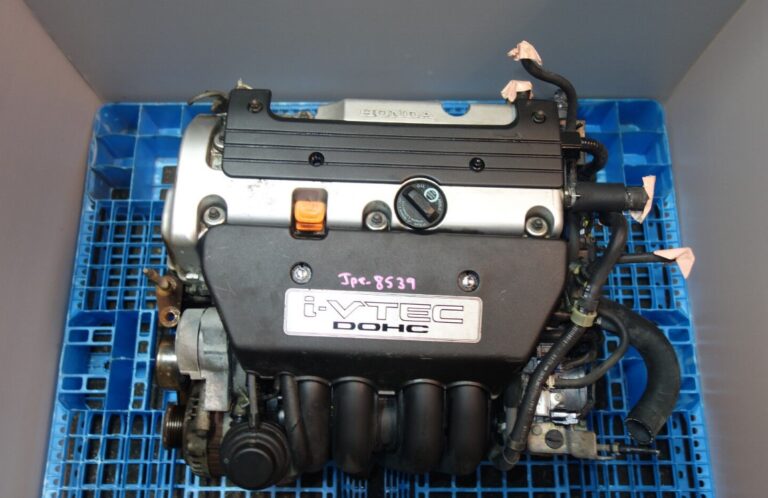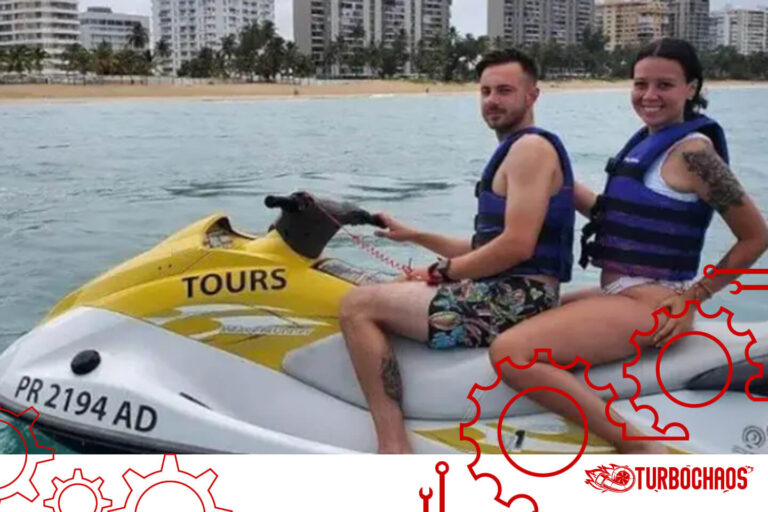Can A Petrol Engine Run On Water? Quick Answer
Many readers have pointed out that Can A Petrol Engine Run On Water? The topic of why our automobiles cannot run on water sometimes crosses peoples’ minds. Why do they require gasoline and diesel for power? Surely, a vehicle cannot obtain energy from water if it is powered by energy.
Both gasoline and diesel are petroleum-based substances, also known as fossil fuels. Hydrocarbons are what makeup petroleum fuels. Carbon and hydrogen atoms make up the majority of hydrocarbon compounds.
Additionally, they contain other elements like oxygen. Hydrocarbons are found not just in gasoline and diesel but also in wood, coal, paper, etc. They are burned to produce energy.
Can A Petrol Engine Run On Water?
Unfortunately, using water to power automobiles is only a fantasy. We all know that water cannot “burn” like conventional (fossil) fuels, but chemistry is the only force that can destroy all prospects of obtaining energy from it in any other way.

Can A Car Run On Water According To Science?
First, the foundational sciences. Your typical internal combustion engine consumes gasoline to release the copious energy held within its chemical bonds, producing toxic byproducts like carbon dioxide.
However, as water does not burn, it cannot be poured into an engine like gasoline. Instead, most assertions that water may be used as fuel for automobiles rely on a chemical procedure called electrolysis, in which electricity is applied to water to split it into its components, hydrogen, and oxygen.
Energy-dense and highly explosive hydrogen. When you burn anything to get energy out of it, hydrogen reacts with oxygen in the air to form—you guessed it—water.

These actions can be taken in any order. High school chemistry students learn how to break down water molecules by electrolysis.
However, fuel cells, which produce energy by combining hydrogen and oxygen and producing water as a byproduct, are a well-established and well-understood technology.
The Toyota Mirai and Hyundai Nexo are two popular hydrogen fuel cell vehicles you can currently find on the road.
The majority of suggestions for water-powered cars combine the two processes into one vehicle, outfitting it with an electrolyzer and a fuel cell to establish a loop: the fuel cell is fueled by the hydrogen produced by electrolyzing water, and the water produced as a byproduct can be fed back into the electrolyzer.
The issue is that you waste much energy throughout both phases due to waste heat and other inefficiencies.
This inconvenient fact of thermodynamics explains why building free-energy-producing perpetual motion machines is impossible.
Lipman calculates that the most effective electrolyzers available today are only approximately 75% effective at splitting water into hydrogen (i.e., around 25% of the energy is wasted).
He claims that once the hydrogen is there, the fuel cell in a car is only around 60% effective in converting it into useful energy, which means an extra 40% of the energy is lost.
It is theoretically conceivable to create a water-powered car using these two techniques, but such a device would squander so much energy as to be completely impracticable.
The water-powered cars that have caught so many people’s imaginations throughout the years sometimes have boringly realistic constraints.
Instead, they frequently depend on vague or unidentified technology that enables the creator to go around the rules of physics and permits the car to travel great distances on relatively little water.
For instance 2007, a guy asserted that salt water might burn if exposed to a radiofrequency field. Before its creator was imprisoned for fraud, a business named Genesis World Energy raised millions of dollars in financing for their plan to subvert the rules of thermodynamics.
An Ohio resident, Stanley Meyer, made the most well-known of many water-powered car claims. Meyer asserted to have created a water-powered dune buggy starting in the 1970s.
According to his design, water is split into hydrogen and oxygen, which are then burned in a conventional internal combustion engine to create water vapor.
Whatever the specifics, Meyer’s car would have defied the laws of physics in the real world, regardless of how it operated in theory.
A fraud case brought by some of his investors was dismissed against him by an Ohio court just before he passed away.
How To Run Your Car On Water?
Your car won’t burn water if it runs on gasoline. However, water (H2O) can be electrolyzed to create Brown’s gas or HHO.
The HHO is injected into the engine’s intake, mixing it with the fuel (gasoline or diesel), ideally causing it to burn more effectively and produce less emissions.
You will continue purchasing gas or diesel because your car still uses its regular fuel. The fuel is only enhanced with hydrogen as a result of the reaction.
Safety is not an issue because the hydrogen is not in an explosive scenario. The addition of HHO shouldn’t affect your engine.
It’s Not So Simple
Don’t let discouragement stop you from trying the conversion, but consider the advertisements with at least some skepticism.
There needs to be more discussion of the trade-offs involved in performing the conversion while reading the advertisements for converter kits or DIY conversion instructions.
How much will it cost you to do the conversion? If you are mechanically inclined, you could build a converter for approximately $100 or spend several thousand dollars to buy a converter and have it installed.
How big of an improvement in fuel efficiency is there? Many figures are thrown around; it depends on your particular vehicle.
Brown’s gas can make a gallon of gasoline last longer, but water doesn’t naturally separate into its constituent parts.
Your car’s electrical system must provide energy for the electrolysis reaction, so you either use the battery or work a little harder on the engine to complete the conversion.
Although oxygen is also created, the reaction’s hydrogen is utilized to improve your vehicle’s fuel economy.
A modern car’s oxygen sensor may interpret the measurements in such a way that it delivers more fuel to the fuel-air mixture, reducing economy and raising emissions.
Although HHO burns cleaner than gasoline, using enhanced fuel does not guarantee that a vehicle will emit fewer pollutants.
If the water converter is very effective, business-minded mechanics will offer to convert automobiles for people lining up to improve their fuel efficiency. That is not taking place.
Why Do People Believe Cars Can Use Water As Fuel?
Most people enjoy a good conspiracy theory, especially one that helps the environment. Many people believe such a thing is possible because some have claimed to have created an automobile that runs on water.
Although a mass-produced water-powered vehicle has never been, many still think the concept is feasible.
People support water-powered vehicles because the idea is appealing. Consider that it serves as an environmentally friendly substitute for conventional gasoline and electric vehicles.
Since water is a renewable resource, using it to power automobiles is an environmentally friendly choice.
Additionally, compared to gasoline-powered vehicles, water-fueled cars would create less, or even no, pollution, making them a more environmentally friendly mode of transportation.
Conclusion
You cannot run a petrol engine on water. Although adding a jug of water to your car’s gasoline door to increase range is intriguing, the technology is not currently available.
It is only a matter of time before we can reduce our dependency on fossil fuels as the demand for alternate propulsion systems grows.
Top FAQ’s
Is it possible for an engine to run on water?
A hydrogen-on-demand car uses a chemical reaction to create hydrogen from water. The car runs on hydrogen-generated electricity from an internal combustion engine or fuel cell.
Is it possible to use water as fuel?
Water and carbon dioxide are incompatible with fuels. These substances are combustion byproducts. Both have the potential to undergo processes that release energy as fuels or energy carriers. These supplementary energy sources (hydropower) have been generously donated by Mother Nature.
What happens if you put water instead of petrol in a car?
Water cannot be compressed; thus, getting into the cylinders can cause the engine to seize and inflict permanent damage. If the water content is high enough, the presence of water will impede combustion inside the cylinder.
What happens if water is mixed with petrol?
There is no compatibility between gasoline and water. Petrol separates into a layer when introduced to water. As a result, two distinct layers—one of gasoline and the other of water—are created in the mixture of gasoline and water.

Welcome to the exhilarating world of Matt Rex, a professional car racer turned renowned vehicle enthusiast. Immerse yourself in his captivating blog as he shares heart-pounding adventures, expert reviews, and valuable insights on cars, trucks, jets, and more. Fuel your passion for speed and discover the beauty of vehicles through Matt’s engaging stories and meticulous expertise. Join the ever-growing community of enthusiasts who find inspiration and expert advice in Matt Rex’s blog—a digital hub where the thrill of speed meets the pursuit of knowledge.


![Yamaha SUV 1200 4-Stroke Conversion [Explanation]](https://www.turbochaos.com/wp-content/uploads/2023/08/Yamaha-SUV-1200-4-Stroke-Conversion-768x512.jpg)


![Can-AM X3 Check Engine Codes [A Complete Breakdown]](https://www.turbochaos.com/wp-content/uploads/2023/11/Can-AM-X3-Check-Engine-Codes-768x725.jpg)
